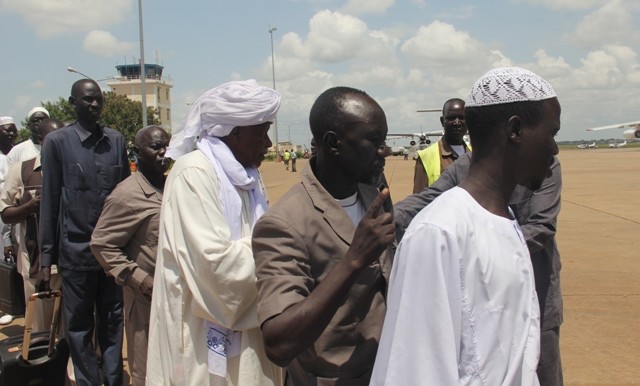Opinion: South Sudan must ensure a secular state

The author is a South Sudanese student pursuing a law degree at the University of Ain Shams in Cairo, Egypt. In this article he argues that South Sudanese Muslims should not face discrimination when seeking employment in South Sudan.
In any democratic society, people are entitled to multiple rights. This is the vital feature of a democratic community and the existence of these rights can improve the living standard.
But in some countries with lower democratic and educational standards, it can be difficult for the state to grant its citizens all of the rights they deserve. So a constitution may refer to the country as democratic, but the country’s government may fail to enforce the constitution, which can lead to lawlessness.
Many African nations lack a democratic mentality, which should help in the implementation of certain fundamental human rights. One element that should exist in a democratic system, but rarely does in the modern African state, is the separation of church from state, known as secularism.
African countries can generally be divided into two camps: Those who identify as Islamic nations and those who identify as secular states.
South Sudan, for instance, is a secular state. Article 8 of the transitional constitution states, “Religion and state shall be separate. All religions shall be treated equally and religious beliefs shall not be used for divisive purposes.”
However, in South Sudan, Islam is not treated as the equal of Christianity. Muslims in many cases face critical discrimination across the country. In government offices, Muslims are rarely employed (although there are some in senior positions). Politicians perpetuate religious differences. In many instances, for example, they refer to the south/north war as a crusading war of Southern Christians versus northern Muslims. And they continue to campaign against any Muslim who expresses his or her bid to lead South Sudan.
But this is not what we want. We want to separate the religion from the state. We want a secular state where every segment of all the religious communities lives in peace and harmony and in a peaceful atmosphere in which each and every religious community worships without a security threat.
South Sudan belongs to all who live in it. It belongs to Muslims, it belongs to Christians and it belongs to those who follow African traditional beliefs. No single person should be denied his or her citizenship simply because of what he or she believes. For South Sudan to progress, religion must truly be separated from the state so non-Christians also have the chance to serve this country.
In other parts of the world, particularly the West, religion is left as an individual choice that regulates the spiritual conduct of the individual in respect to God. The state, meanwhile, belongs to every citizen regardless of his or her religion, race or sex. In the West, the state helps every citizen, whether Muslim or Christian or whatever. Today the West emerges as superior to the rest of the world. Why? It’s because fundamental human rights are protected and religion is left to personal choice.
I am not a Muslim, but truth must be told for the sake of peace in South Sudan. I believe as long as religion is still wrapped up in the state, as it is in many African countries, our speed toward the international line – particularly the Western standard – will be low.
File photo: South Sudanese Muslims leaving Juba Airport for Hajj.
The views expressed in ‘opinion’ articles published by Radio Tamazuj are solely those of the writer. The veracity of any claims made are the responsibility of the author, not Radio Tamazuj.